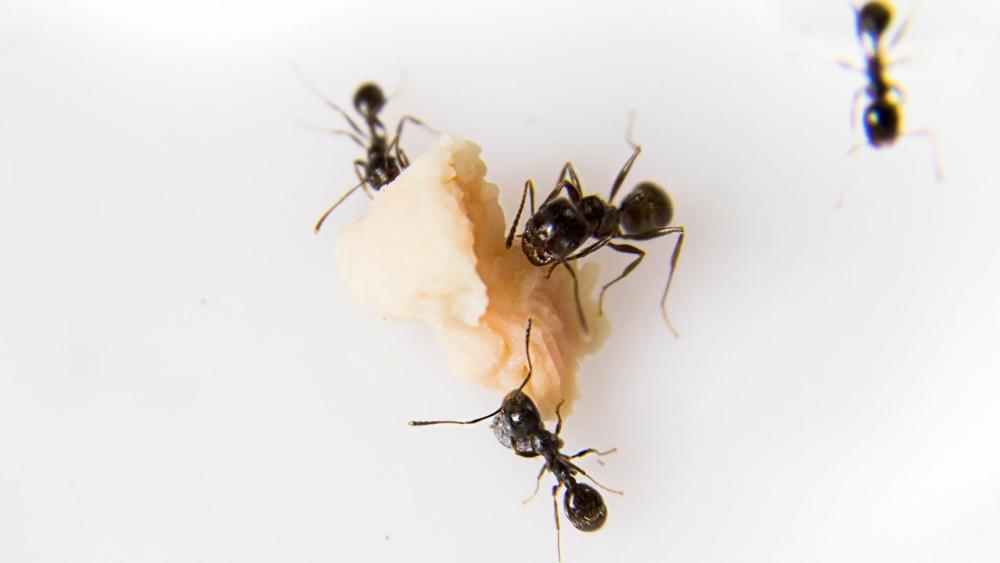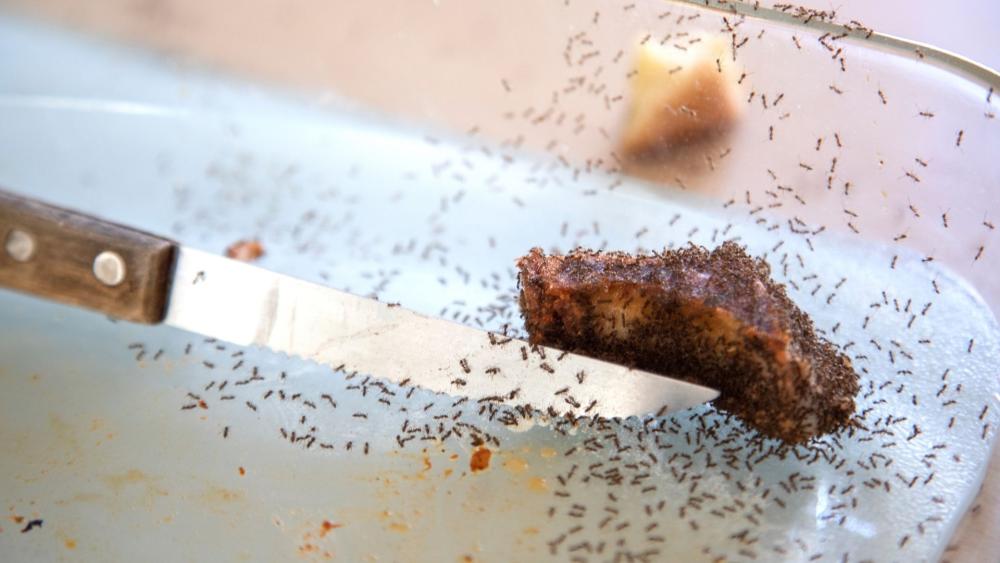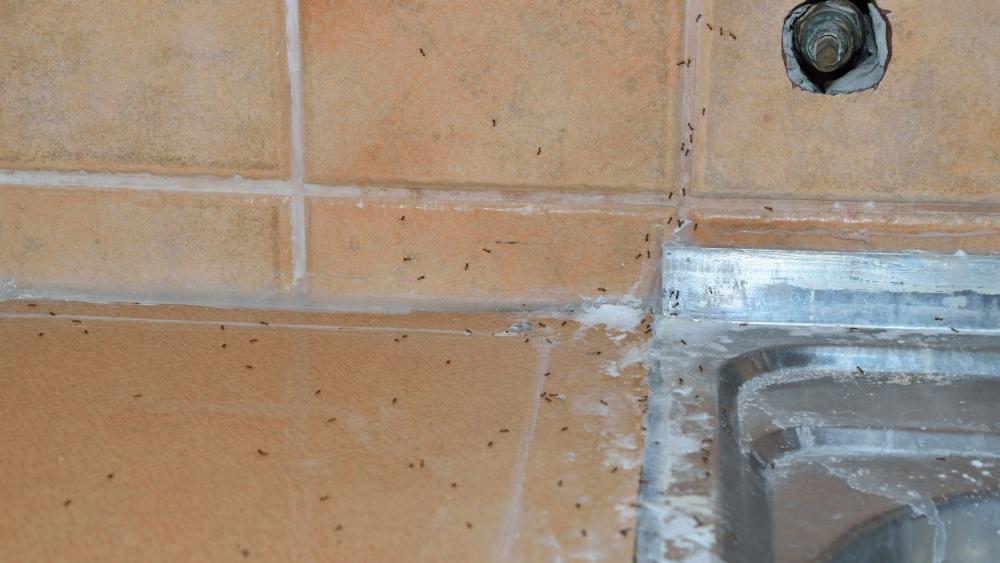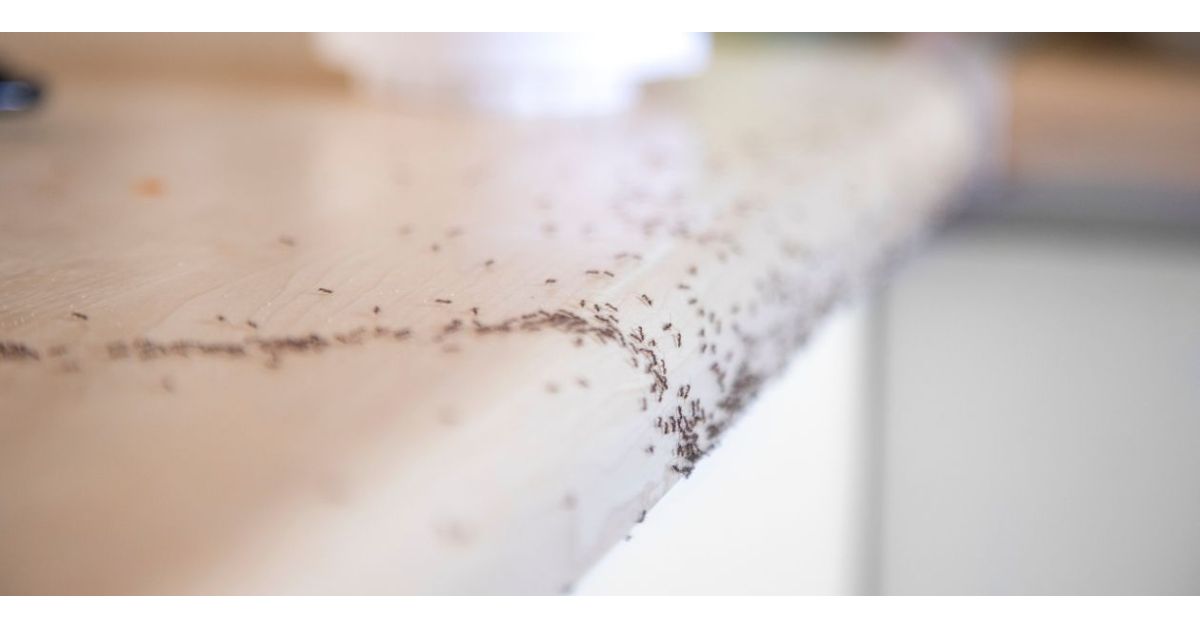Find Out How To Get Rid Of Ants In The Kitchen
Finding ants roaming around your kitchen is never fun. This is particularly true because you might not realize it until there is a major ant problem. Ants are attracted to food sources, which can be very difficult to get rid of.
This blog post will discuss how to get rid of ants in the kitchen. We will first explain why they might be invading your kitchen. Then we will discuss how to eliminate them using various methods. Finally, we will also discuss how to prevent ants from entering your kitchen in the first place!
Why Ants May Be In Your Kitchen
You're not alone if you've ever found ants crawling around your kitchen. Ants are attracted to kitchens for a variety of reasons. First, kitchens are a source of food. Pet food, spilled crumbs, and sugary foods like honey all attract ants.
In addition, ants rely on scent trails to find their way around. When ants find a food source, they leave behind a pheromone trail that other ants can follow. As a result, once a few ants find their way into your kitchen, it's only a matter of time before the whole colony arrives.
Finally, walls and kitchen countertops provide the perfect surface for ants to build their nests. The warm temperature and easy access to food make kitchens ideal for ants to set up shop. If you're dealing with a frustrating ant problem in your kitchen, there are a few things you can do to get rid of them. With a little effort, you can soon have your kitchen back - minus the unwanted visitors.

Ants love the smell of sweet foods. If you have spilled jam or honey in your kitchen, ants may target the area as a food source.
How To Identify Ant Species
There are upwards of 12,000 species of ants globally, but only a handful of them are commonly found in houses. The most common species of ant found in kitchens is the Argentine ant. Argentine ants are tiny (about one-eighth of an inch long) and light brown in color.
Another common household ant is the carpenter ant. Carpenter ants are significantly larger than Argentine ants and are black or dark brown in color. They get their unique name from their habit of tunneling through wood to build their nests.
While most species of ants are not harmful, carpenter ants can cause damage to your home if they build their nests inside walls or cabinets. If you suspect you have carpenter ants, it's crucial that you address the problem immediately.
How To Inspect For Ants In Your Kitchen
The first step in getting rid of ants is to find out where they're coming from. One tell-tale sign that you may have an ant problem is the presence of pet food scattered on your kitchen floor.
Ants are attracted to the scent of pet food, and they will often follow the trail of crumbs left behind. So if you spot ants in your kitchen, it's crucial to take action right away. Otherwise, the problem will only become worse.
The first step is to inspect your kitchen countertops for any signs of ant activity. Look for small piles of crumbs or evidence of chewing. If you see any areas that appear to be affected by ants, clean them up right away.
Next, look around your kitchen for any potential ant nesting sites. These could be in cracks in the walls or under appliances.
If you find an ant nest, you'll need quality, professional pest control products to eliminate it. Once you remove the nest, the ant colony will be contained, and your ant problem will likely be solved.

Ants are very persistent creatures and will swarm food scraps until the problem is dealt with.
How To Get Rid Of Ants In The Kitchen
If you've found ants in your kitchen, you'll want to get rid of them as quickly as possible. Some people may recommend using home remedies like boric acid. Others may say to try mixing an ant spray with dish soap and water to put in a spray bottle.
Some may even recommend using boiling water. However, to truly have a surefire effect on the ant infestation, you'll need professional products to finish the job.
The good news is that there are several effective ant control products on the market. However, before selecting a bait or spray, it's essential to understand how ants operate. Ants are highly social creatures and live in colonies that can number in the millions.
When foraging for food, ants will follow set paths or trails. Hundreds or even thousands of ants often use these trails. Therefore, ant non-repellent insecticides applied to these trails can effectively control ant populations.
There are two main types of ant control products: baits and non-repellent insecticides. Both types of products can be effective at controlling ant populations. However, baits require a bit more monitoring than non-repellent insecticides.
With baits, you'll need to locate ant trails and monitor their activity. It's important only to use these methods as others (like ant repellents) will often scatter the ants.
We recommend both a sweet-based and a greasy/protein-based bait. They'll feed on the bait and take it to their colony, eventually killing the queen. This will effectively kill the ants.
We highly recommend baits like:
In addition to ant baits, we also recommend non-repellent insecticides for ant control. Navigator SC Concentrate, Phantom Aerosol II, and a combo pack like our Non-Repellent Ant Kit are excellent choices. These products kill the ants quickly and prevent them from coming back. So if you're looking for a quick and effective way to get rid of those pesky ants, make sure to try one of these products.
Excellent non-repellent ant insecticides:

Ants leave trails with their pheromones. If you leave bait along these trails, you’re likely to get ants to take the poison back to their nest.
Prevent Ants From Coming Back
You can prevent ants from coming back to your kitchen by taking simple precautions. First, keep your kitchen clean and free of crumbs or food debris. Ants are easily attracted to the scent of food, so you'll make it less appealing to them by keeping your kitchen clean.
Another way to prevent ants is to seal up any cracks or openings that they could use to enter your home. For example, check around doors and windows for gaps and seal them with caulk or weatherstripping.
Finally, you may be able to prevent ants in your house by thoroughly spraying the outside perimeter with a non-repellent like Navigator SC.
Do-It-Yourself Doesn't Mean Going It Alone. Count On Do-It-Yourself Pest Control.
Ant control can be tricky if you aren't sure where to begin or what products to use. But, you can rely on our friendly team of pest control experts! We'll help you get precisely the right items and knowledge you need to succeed. So, check out all of our ant control products here and give us a call if you have any questions.









